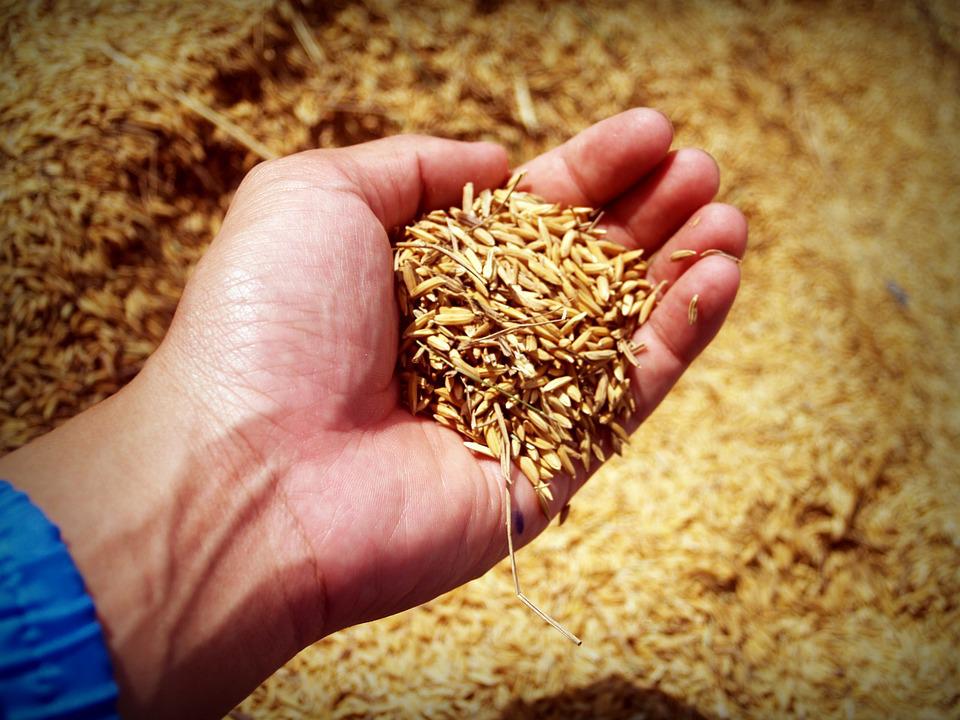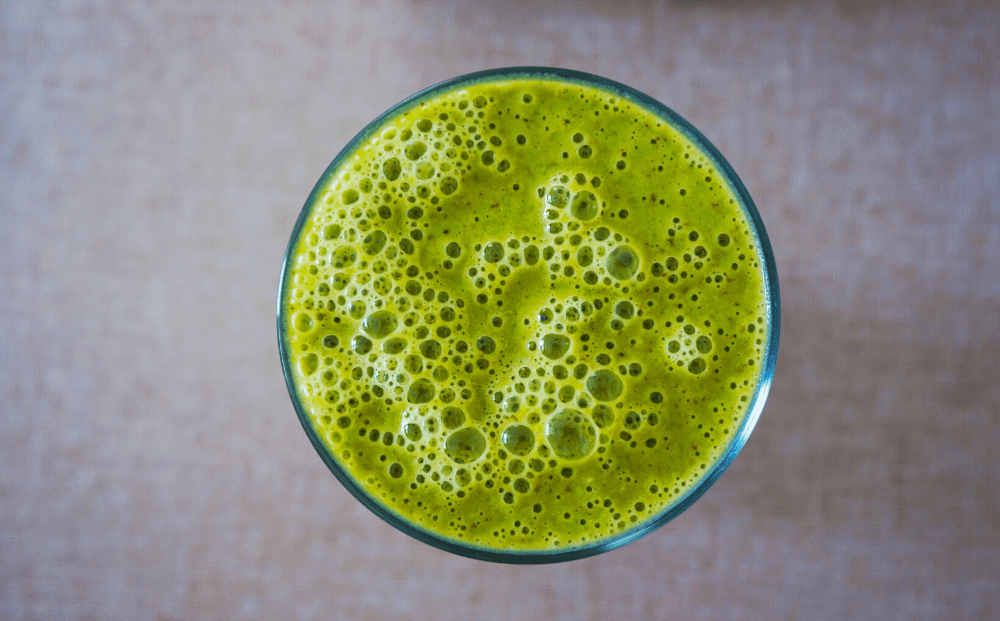
Could meditation be the secret to a healthy gut?
Struggling with gut troubles? Done everything you can to clean up your diet but still find yourself suffering from indigestion? Don’t give up hope just yet. Mounting research shows that even a perfect diet full of fermented foods and organic veggies may not be enough to heal digestive disorders. Why? Because gut health isn’t only about the food you eat.
The human gut is deeply connected with the nervous system. The gut contains a neural network that is made of the same material as the central nervous system leading some researchers to dub the gut as your “second brain.” In fact, the gut is directly connected to the brain by a neural circuit involving the vagus nerve, which means the gut and the brain can communicate faster than you can blink.
And because this digestive neural network is so deeply connected with the central nervous system, stress can cause all kinds of gut problems. That’s where meditation comes in.
In calming your stress response, meditation can help prevent the slowed digestion speed, altered gene expression, intestinal permeability, and disruptive changes to gut microbes caused by stress.
WE’RE OVER-STIMULATED AND UNDER-RESTED
Our lifestyles and environments have changed dramatically since the days of hunting and gathering. While our ancestors spent ample time in stress-reducing natural settings and stayed engaged in calming rhythmic tasks like weaving, chopping wood, making music, and dancing, we find ourselves driving on highways, staring at computer screens, and scrambling to meet deadlines.
School and work paradigms of success leave us feeling anxious about performance and concerned about how we measure up to others. And with stress and status so tightly intertwined, we even find ourselves bragging about how busy we are.
But while our lives have changed dramatically since our hunter-gatherer days, our guts have not. This great siege of distraction and disconnection does no favors to our digestive health. So how do we get our bodies back on track?
HOW DOES STRESS AFFECT THE GUT?
STRESS ALTERS GUT BACTERIA
Healthy digestion depends on an abundance and diversity of gut bacteria. Under normal circumstances, the 100 trillion bacteria living in your gut help metabolize nutrients and protect against bacterial infections. Good gut bacteria also create short-chain fatty acids, which have anti-inflammatory and anti-tumor effects.
But when the stress response is triggered, the body initiates a chemical reaction that involves pouring adrenaline and cortisol throughout the body’s systems. These changes can alter the composition of the gut microbiome.
One study found that in mice subjected to chronic stress, gut bacteria changed composition, with the most changes found in bilophila and dehalobacterium. These particular bacteria have been linked to autoimmune malfunction. In an even weirder twist, the stressed mice appeared to undergo genetic alterations that switched on genes linked to “violent traits,” and a portion of their formerly-benign gut bacteria became pathogenic i.e. began attacking body tissue.
Another study of mice found that good bacteria in the gut produce vitamin A, which may help promote healthy immune function.
Granted, what’s true for mice isn’t always true for people. But these and other studies suggest that gut bacteria may be instrumental in regulating the human body’s immune response.
STRESS SLOWS DIGESTION AND CAN LEAD TO LEAKY GUT
In addition to altering the gut microbiome, stress may also inhibit or shut down digestion. Why?
During a stressful event, the circulatory system diverts blood flow from digestive organs to the arms, legs, heart, and lungs, so you can pack a good punch or sprint for safety. This is also why eating a big meal right before you exercise feels bad—your body is delaying digestion until you’re at rest again.
For our ancestors, this system worked well, since stressors usually took the form of predators you could run from. In other words, stress was an all-or-nothing push for survival that required the resources of your entire body.
But great percentage of today’s stressors are subtler and chronic, with no end in sight. Your ancient fight-or-flight response is not going to save you from the stress of cars rushing past you, the overload of digital stimulation, or the fast-approaching deadline for your current project. This means the body is in an ongoing state of self-protection, creating ongoing dissonance as we try to put food in a digestive system that is not fully functioning.
To make matters worse, the stress hormone corticotropin releasing factor (CRF) can cause stomach ache, bloating, and irregular bowel movements, and excessive or persistent amounts of stress hormones can also weaken the gut lining.
When this lining breaks down, it leads to microscopic openings in the intestines that can allow particles and bacteria to enter the bloodstream. This phenomenon is called intestinal permeability or leaky gut. Leaky gut has been linked to inflammation, food allergies, autoimmune diseases, and possibly depression, though researchers don’t know for sure if leaky gut is a symptom or cause of these conditions.
In short, no amount of healthy eating is going to resolve the stress factor of gut health. We need a multi-pronged approach to digestive wellness. In addition to choosing gut-friendly foods and high quality digestive supplements, we need a way to regulate the stress in our lives, and meditation practice is a simple way to start.
FOUR TYPES OF MEDITATION TO IMPROVE DIGESTIVE HEALTH
Meditation is an ancient practice of contemplation that can serve as a potent stress reliever, which in turn helps heal the gut. In a relaxed state blood flow is directed toward the body’s digestive organs, helping them function optimally.
Another important way meditation techniques can support gut health is by changing your gene expression. Harvard researchers conducted a study in which participants with Irritable Bowel Syndrome (IBS) and Inflammatory Bowel Disease (IBD) practiced meditation relaxation techniques. They found that a number of genes are directly linked to inflammatory processes of IBD and that the expression of genes could be altered by deep relaxation to support digestion.
Meditation usually involves sitting or reclining in quiet reflection, but there are also many varieties that use movement, voice, music, and creative work. What ties all meditation practices together is the fundamental act of becoming intimate with the present moment. The best practice for you depends on your personal needs and preferences.
1. LOVING-KINDNESS MEDITATION
Loving-kindness meditation is a practice that uses words and imagery to cultivate feelings of friendliness and goodwill toward oneself and others. While that sounds nice, you may not think this type of meditation is the most direct path to healthy digestion.
But if the stress in your body is connected to feelings of inadequacy or damaged self-esteem, then this meditation can go a long way towards healing your gut. With daily practice, turning love inward can interrupt anxiety loops and destructive thoughts and behaviors. In this way loving-kindness meditation can help you heal your relationship with yourself and put an end to the floods of adrenaline and cortisol.
Loving-kindness meditation can also work if there is someone in your life who regularly triggers your nervous system (and therefore damages your gut). This practice could help you replace (or soften) your negative emotional reactions with thoughts to promote your own healing.
While you may normally be triggered into anger or frustration when you interact with this person, you can learn to interrupt that destructive pattern and access feelings of love, empathy, patience, and goodwill toward the other person.
Sending love to someone you really don’t like is hard, but that’s what makes the practice so powerful. When you engage in loving-kindness meditation, you’re altering not only the way you think, but the way your body works.
2. MINDFULNESS MEDITATION
Mindfulness meditation is an increasingly popular method for managing the stress response and promoting well-being. The handy thing about mindfulness meditation is that you can sit quietly for five-to-ten minutes as well as incorporate it into you daily tasks. All mindfulness requires is to becoming conscious of what you’re doing, thinking, or saying, and to observe it without judgement.
Mindfulness meditation specifically encourages the practitioner to become conscious of their responses to triggering situations. It teaches you to recognize the ways you react to stressors and to re-program yourself to respond in a way that decreases suffering on your part and anyone around you.
This is a great form of meditation to practice when it comes to gut health because it can be used in any stressful situation. Instead of letting yourself be emotionally triggered by a bad driver on the road, for example, you could acknowledge what’s happened, do your best to avoid any danger, and move on.
Over time this practice will help keep your stress hormones in check, reducing wear-and-tear of stress on your digestive system.
3. MANTRA MEDITATION
Mantra meditation involves chanting a word, phrase, or sound. This form of meditation is excellent for calming a stress response and for promoting healing processes. Chanting provides a point of focus that steadies the body and the mind and also helps regulate your breathing. It can even be used as an intervention when anxiety is building or during a panic attack.
Mantra meditation is a good tool for anyone dealing with extreme levels of stress, and is also useful for generally promoting wellness.
4. BREATHING MEDITATION
The breath has the potential to be a powerful source of healing and happiness. Breathing is ordinarily an automatic process, but we can also choose to step in and make it conscious. This means that the breath is involved with both the autonomic (involuntary) and somatic (voluntary) nervous systems. It can be a transformational bridge from involuntary reactions to mindful response.
By consciously moving your breath, you change the state of the nervous system. Slow, deep, steady breaths will send a cascade of messages throughout your body that you are in a safe situation. This means that your body can get out of “fight or flight” and go into the “rest and digest” mode. Training in breathing practices is often offered in yoga classes. There are also free online learning videos that demonstrate how to use your breath to promote your health and heal your gut.
STRUGGLING WITH THESE MEDITATIONS? TRY GUIDED MEDITATION.
Guided meditation offers a great starting point for a contemplative practice because it includes context and support. You can go to a meditation center or listen to free guided meditations online. All of the meditation forms we cover below can be practiced on your own, or with guided audio tracks.
This form of meditation is great for beginners, or if you have trouble sitting in silence.
HOW TO BUILD YOUR MEDITATION PRACTICE
Meditation can produce tangible benefits right away, but chances are it won’t heal your gut overnight. Meditation works most effectively when practiced regularly. But your practice doesn’t have last for hours to make a difference.
Start with five minutes in the morning and five minutes before bed. Incrementally increase the amount of time you spend in meditation. Consider incorporating a longer session once a week, about 30-to-45 minutes. Experiment with different times of day and lengths of practice. There is no one-size-fits all solution when it comes to meditation.
If you have trouble sticking to a regular practice, you may can try joining a local group that meets for meditation practice to keep you accountable and motivated.
You may also have meditation centers or yoga centers near you that offer free or low-cost meditation classes.
Over time, you’ll likely find that meditation offers much more than gut health. Enjoy the benefits of feeling more at peace, getting better sleep, and returning to your happy, vibrant self.








